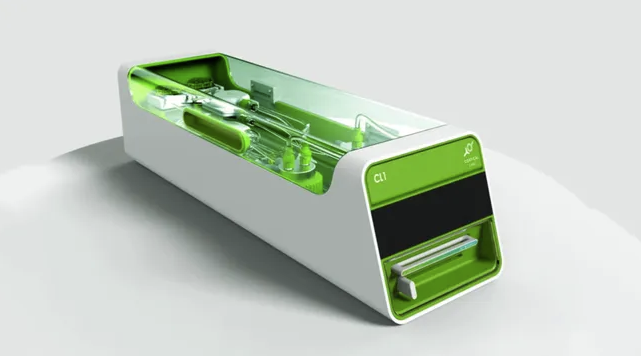According to Tomshardware , biotechnology company Cortical Labs introduced a neural cell computer called CL1 at the MWC 2025 event (Spain). This is considered the world's first biological computer that can execute code and will be provided to researchers next June, priced at about $35,000.
Instead of using human brain cells directly, CL1 works by growing neurons in a nutrient-rich environment. These cells grow on a silicon chip, forming a biological neural network that can send and receive electrical signals. The accompanying operating system, called the Biological Intelligence Operating System (biOS), simulates a virtual world that helps neurons respond to commands.

The combination of human brain cells and computer technology creates a system capable of learning, adapting and processing data in ways never before possible.
According to Cortical Labs, CL1 is a self-contained system that requires no additional hardware or external support to keep the neurons alive. However, due to their biological properties, these cells can only last for about six months before needing to be replaced.
The product is primarily aimed at artificial intelligence and data science researchers. In addition to the physical version, Cortical Labs also offers the CL1 via a cloud platform, allowing scientists to remotely access and deploy code across multiple CL1 devices. However, sustainability issues remain as the short lifespan of the cells requires constant replacement, making long-term research challenging.
Cortical Labs claims that CL1’s main advantage over traditional neural networks is the natural adaptability of neurons. Because of their biological nature, the cells can dynamically adjust their response to instructions, accelerating learning and processing complex data.
Although the neurons in CL1 were grown in a lab, using human brain cells for computational purposes raises a number of ethical questions. CL1 must create a simulated environment in which neurons “live” and respond to data, reminiscent of the controversy surrounding HeLa cells. According to Cortical Labs’ research, neurons in this system show signs of cognitive-like responses, raising concerns about the technology’s long-term impact on scientific ethics and human rights.
Source: https://thanhnien.vn/may-tinh-sinh-hoc-dau-tien-dung-te-bao-nao-nguoi-18525030722545317.htm



































































































Comment (0)